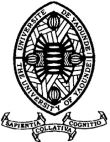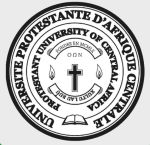Upper Dysphagia Revealing Diffuse Idiopathic Skeletal Hyperostosis (Forestier's Disease): A Case Report and Review of the Literature
DOI:
https://doi.org/10.5281/hra.v2i4.5470Keywords:
la maladie de forestier, dysphagie, hyperostose squelettique idiopathique, DISHAbstract
ABSTRACT
Diffuse idiopathic skeletal hyperostosis (DISH) or Forestier's disease is a benign condition characterized by ossification of the ligaments which mainly involves the anterior longitudinal ligament and less frequently the posterior longitudinal part of the spines. We report a case of Forestier's disease revealed by dysphagia to solids in a 62-year-old patient with no particular pathological history, received in our department for progressively worsening solids dysphagia evolving for approximately more than 10 years, with no other associated signs, with a tendency to become complete for one month. The cervical computed tomography (CT) performed revealed an anterior exostosis at the level of C4-C5, anterior marginal osteophytosis, evoking Forestier's disease. The patient underwent complete excision of the osteophytes located at the level of C4-C5 by way of anterolateral cervicotomy. After a follow-up of 09 months postoperatively, the patient was doing well and the cervical CT performed after 03 months postoperatively showed a complete disappearance of the osteophytes. In conclusion, Forestier's disease, although rare, can present with symptoms such as dysphagia and should be considered in the differential diagnosis of patients with progressive difficulty swallowing. Early diagnosis and appropriate management, such as surgical excision of the osteophytes, can lead to a favorable outcome and improvement in symptoms. Regular follow-up is essential to monitor the progression of the disease and ensure optimal patient care.
RÉSUMÉ
La maladie diffuse de l'hyperostose squelettique idiopathique (DISH) ou maladie de Forestier est une affection bénigne caractérisée par l'ossification des ligaments qui touche principalement le ligament longitudinal antérieur et plus rarement la partie postérieure des vertèbres. Nous rapportons un cas de maladie de Forestier révélé par une dysphagie aux solides chez un patient de 62 ans sans antécédents pathologiques particuliers, admis dans notre service pour une dysphagie aux solides progressivement aggravée évoluant depuis plus de 10 ans, sans autres signes associés, tendant à devenir complète depuis un mois. La tomodensitométrie (TDM) cervicale réalisée a révélé une exostose antérieure au niveau de C4-C5, une ostéophytose marginale antérieure, évoquant la maladie de Forestier. Le patient a subi une exérèse complète des ostéophytes situés au niveau de C4-C5 par cervicotomie antérolatérale. Après un suivi de 09 mois postopératoire, le patient se portait bien et la TDM cervicale réalisée après 03 mois postopératoire a montré une disparition complète des ostéophytes. En conclusion, la maladie de Forestier, bien que rare, peut se manifester par des symptômes tels que la dysphagie et doit être envisagée dans le diagnostic différentiel des patients présentant une difficulté progressive à avaler. Un diagnostic précoce et une prise en charge appropriée, telle que l'exérèse chirurgicale des ostéophytes, peuvent entraîner un pronostic favorable et une amélioration des symptômes. Un suivi régulier est essentiel pour surveiller l'évolution de la maladie et assurer des soins optimaux au patient.
References
Sebaaly.A, Boubez. G, Sunna. T et al. Diffuse Idiopathic Hyperostosis Manifesting as Dysphagia and Bilateral Cord Paralysis: A Case Report and Literature Review. World Neurosurgery 2018;111: 79-85. https://doi.org/10.1016/j.wneu.2017.12.063
Resnick D, Shaul SR, Robins JM. Diffuse idiopathic skeletal hyperostosis (DISH): Forestier's disease with extraspinal manifestations. Radiology 1975;115(3):513e24.
Kuperus JS et al., Diffuse idiopathic skeletal hyperostosis: Etiology and clinical relevance, Best Practice & Research Clinical Rheumatology, https://doi.org/10.1016/j.berh.2020.101527
Aires M.M, Fukumoto.G.M et al. Dysphagia due to anterior cervical osteophytosis: case report. CoDAS 2022;34(2):e20200435. DOI: 10.1590/2317-1782/20212020435
T. BENMAMAR, K. BOUAITA, K. BOUSTIL, N. IOUALALEN. La maladie de forestier à propos d’un cas et revue de la littérature. Journal de Neurochirurgie(2016) :numéro24
P. Lecerf, O. Malard. How to diagnose and treat symptomatic anterior cervical osteophytes? European Annals of Otorhinolaryngology, Head and Neck diseases (2010) 127, 111—116. https://doi.org/10.1016/j.anorl.2010.05.002
H. Sardana et al. Dysphagia, dysphonia & and dyspnoe caused by ostrich beak-like anterior C1-C2 cervical osteophyte. Interdisciplinary Neurosurgery 16 (2019) 132–134. https://doi.org/10.1016/j.inat.2019.01.020
Pulcherio JOB, Velasco CMMO, Machado RS, Souza WN, Menezes DR. Forestier’s disease and its implications in otolaryngology: literature review. Braz J Otorhinolaryngol. 2014;80:161-6
García Zamorano S, García del Valle y Manzano S, Andueza Artal A, Robles Ángel P, Gijón Herreros N. Obstrucción aguda de vía aérea en paciente con enfermedad de Forestier. Caso clínico. Rev Esp Anestesiol Reanim. 2019;66:292---295.
Bernard Mazières. L’hyperostose vertébrale ankylosante (maladie de Forestier et Rotés-Quérol) : du nouveau ?. Revue du rhumatisme 80 (2013) 564–568. http://dx.doi.org/10.1016/j.jbspin.2013.02.011
Donald Resnick, Gen Niwayama. Radiographic and Pathologic Features of Spinal Involvement in Diffuse Idiopathic Skeletal Hyperostosis (DISH). Radiology (1976) 119:559-568.
Mader R, et al. Imaging of diffuse idiopathic skeletal hyperostosis (DISH). RMD Open 2020;6:e001151. https://doi.org/10.1136/rmdopen-2019-001151
Bettina G. Weiss, Lucas M. Bachmann. Whole Body Magnetic Resonance Imaging Features in Diffuse Idiopathic Skeletal Hyperostosis in Conjunction with Clinical Variables to Whole Body MRI and Clinical Variables in Ankylosing Spondylitis.The Journal of Rheumatology 2016; 43:2; https://doi.org/10.3899/jrheum.150162
Wassia Kessomtini , Wafa Chebbi. La maladie de Forestier : une cause rare de dysphagie à ne pas méconnaître. Pan African Medical Journal. 2014; 18:140. https://doi.org/10.11604/pamj.2014.18.140.4710
J.-J. Verlaan et al. Diffuse idiopathic skeletal hyperostosis of the cervical spine: an underestimated cause of dysphagia and airway obstruction. The Spine Journal 11 (2011) 1058–1067. https://doi.org/10.1016/j.spinee.2011.09.014
Carlson ML, Archibald DJ, Graner DE, Kasperbauer JL. Surgical management of dysphagia and airway obstruction in patients with prominent ventral cervical osteophytes. Dysphagia. 2011;26:34-40.
Rajesh Essran. Clinical Images Diffuse Idiopathic Skeletal Hyperostosis induced Oropharyngeal Dysphagia. J Gen Intern Med 36(1):220–1. https://doi.org/10.1007/s11606-020-05915-x
Candelario N, Lo KB, Naranjo M. Cervical diffuse idiopathic skeletal hyperostosis (DISH) causing oropharyngeal dysphagia. BMJ Case Rep 2017. https://doi.org/10.1136/bcr-2016-218630
Maiuri F, Cavallo LM, Corvino S, Teodonno G, Mariniello G. Anterior cervical osteophytes causing dysphagia: Choice of the approach and surgical problems. J Craniovert Jun Spine 2020;11:300-9
Choi, H.Y.; Jo, D.J. Surgical Treatment of Dysphagia Secondary to Anterior Cervical Osteophytes Due to Diffuse Idiopathic Skeletal Hyperostosis. Medicina 2022, 58, 928. https://doi.org/10.3390/medicina58070928
Bunmaprasert et al. Surgical management of Diffuse Idiopathic Skeletal Hyperostosis (DISH) causing secondary dysphagia (Narrative review). Journal of Orthopaedic Surgery 29(3) 1–9. https://doi.org/10.1177/23094990211041783
Downloads
Published
How to Cite
Issue
Section
License
Authors who publish with this journal agree to the following terms:
- Authors retain copyright and grant the journal right of first publication with the work simultaneously licensed under a Creative Commons Attribution License CC BY-NC-ND 4.0 that allows others to share the work with an acknowledgement of the work's authorship and initial publication in this journal.
- Authors are able to enter into separate, additional contractual arrangements for the non-exclusive distribution of the journal's published version of the work (e.g., post it to an institutional repository or publish it in a book), with an acknowledgement of its initial publication in this journal.
- Authors are permitted and encouraged to post their work online (e.g., in institutional repositories or on their website) prior to and during the submission process, as it can lead to productive exchanges, as well as earlier and greater citation of published work










